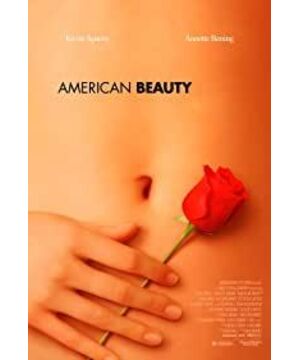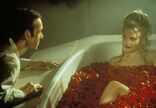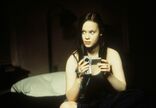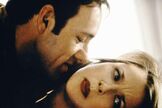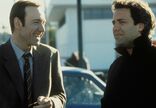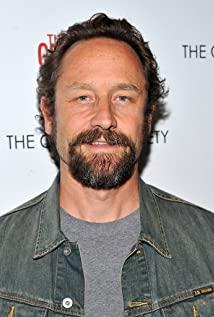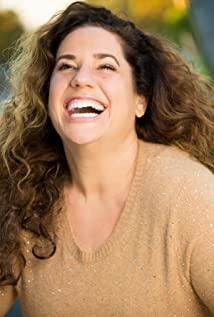After the New Hollywood Film Movement, Hollywood films as "Dream Factory" went out of the studio, no longer limited to the output of genre films, but turned their perspective to people and human nature, to the dark side of social reality and the survival of people in it. state, and have made in-depth thinking and painful reflection on this. As a contemporary American film influenced by the New Hollywood film movement, American Beauty was released in 1999 and won five Oscars and numerous other awards in 2000, and received rave reviews. The whole film mainly revolves around two families (Jenny's family and Richie's family) and a beautiful woman (Angela), showing many aspects of the American social predicament, as well as the group portrait of the American middle class and the repressed state of human nature.
The character presentation and content of the whole film are rich, the clues are intertwined, and the characters are connected with each other, involving all aspects of social life such as career and family, sex and drugs, material confinement, and interpersonal difficulties. But what is very clear is that in the American middle-class family, the survival dilemma of the two generations and the contradiction and separation between the generations.
1. The middle-aged generation: the internal and external alienation of society and marriage
The development of modern society has made the judgment of value more and more simplistic. A perfect image, abundant wealth, and a bright and beautiful career have become the direction that people are chasing after. The subjectivity, integrity and freedom of human spirit And plumpness was put aside. The middle-aged generation in such a society is often under the dual pressure of external social undertakings and internal marriage and family at the same time. Caroline and Lester in the film are very representative images of two middle-class middle-aged people, but they show almost opposite trends.
1. Caroline's Shackles
Caroline is a typical modern person who is deeply immersed in "social values". She tries to become a strong one, but she is imprisoned and destroyed by it.
Smart hairstyles, outfits and heels, she tries to start a successful day with confidence and "in control" every day. For the sake of her career, she always needs to maintain a perfect image. On the surface, she confidently and exaggeratedly introduces the house she sells to all customers. Behind it, she works as a cleaner in exchange for a better appearance of the house; On the surface, she attended the reception with her husband and talked with everyone, but in fact it was just a false support and performance. She continued to give and work hard to pursue the success and beauty of modern society, but she stopped again and again in what she thought was a failure. She was repressed in the shackles of social values, shackled by what she thought was powerful, but in fact she was riddled with holes. But even so, as a "strong man", whether in front of people or alone, she would not allow herself to be vulnerable in the slightest. After the failed sale, she pulled the curtains and broke down briefly, crying and slapping herself, not allowing her vulnerability to be revealed. Under this double repression from the outside world and her own heart, all her possible emotional release and stress relief were obliterated.
In the family environment, she also tried to be a strong person, but it exacerbated the division within the family. In a scene at the door of the house at the beginning of the film, before going to work in the morning, she was the first to come to the car and urged her daughter and her husband to get in the car. On the way, she complained about her daughter's dress: "If you want to make yourself If you look unattractive, then you are successful"; on the way to her husband, she taunts: "I could be even longer." Then she sat in the driver's seat delicately, her daughter in the co-pilot, and her husband Lester slumped in the back seat. This scene seems to clearly present the status and interrelationships in the family: Caroline is the strong controller, her daughter is a rebel who is difficult to communicate, and her husband is a complete useless in the worldly sense. Sharp ridicule and strong contempt seem to be the norm for her to get along with her husband.
Caroline tried to be a bright and strong person in both social career and family, and both sides undoubtedly gave her a heavy blow. She had an affair with the intermediary king, went to shoot, and sang in the car. It seemed that she had obtained a brief release and joy, and rediscovered her own subjectivity and state of existence. However, the affair was discovered, and the intermediary Wang left her because of her "perfect image" and the price of divorce. The career still stagnated, the family conflict became more intense, and the short-term release ended quickly. At the end of the film, she sits alone in the car listening to the "Be Stronger" radio, outside the car is dark night and pouring rain, she pulls out a pistol, and collapses in the struggle of vulnerability and power. Caroline seems to herald a group of middle-class modern people in contemporary society who are deeply trapped in the whirlpool of secular values, struggling to live in the back and forth between long-term deep confinement and short-term superficial release, and their living conditions are in a devastated state. Step by step towards distortion.
2. Leicester's silent resistance
Lester and Caroline seem to be two opposite states of the way this modern society lives. Caroline chose to struggle with catering and investment, while Lester flouted social rules and chose to find her own state of existence in disregard, and rebelled accordingly.
The living state of middle-aged Leicester can be divided into two periods. In the first period, he worked mediocrely in the magazine for 14 years, achieving nothing and no desire. He found his own comfort in what Caroline thought was "decadent" and "useless". lock up. In family life, three family members sit in front of the exquisite dining table every day to have an exquisite dinner, listening to elegant light music, but in fact they are indifferent to each other's life, and Lester, as the most "mediocre" person in the family, She is ridiculed and ridiculed by Caroline every day, and as a "perverted" person, she is despised and disgusted by her daughter Jenny. Whether in social or family relationships, Lester has been "bullied" for a long time, but Lester has always resisted the repression of social rules and secular materials in a way that is almost self-defeating. What he shows is A kind of indifference to the decadence of life, nesting in his comfort zone in a secular modern society in a mocking way.
And Lester met two people who transformed him. The first person is Angela, daughter of Jenny's friend, the incarnation of "American Beauty". A youthful and beautiful cheerleader lights up Lester's long-silent heart. He has his own dream lover and sexual fantasy object. . And Angela and Jenny praised Lester's sexy words were overheard by Lester, he was activated and lit up, he began to run and exercise every day, and found his new life in the praise and recognition of a young girl pursuit and direction. At the same time, in an encounter with the boy next door, Ricky, he began to pick up drugs, and was stimulated by seeing Ricky's resignation, as if he suddenly understood the state of existence he wanted. Lester has changed since then. He began to despise and rebel against secular values and social rules, resign gracefully and corrupt his boss $60,000. He sought out "no-brainer jobs" and became a McDonald's waiter, separating himself from the secular world, preventing himself from being drawn into it, and living in the way he was most comfortable. He despised material things, despised Caroline's money worship, and refused to shackle himself in it. He bought a long-awaited red sports car, and tried to fight the repression and control of material things on people by converting money into happiness.
Lester's image is very full, he is "stupid and wise, full of desire and rational integrity, interweaving incompetence and wisdom, weakness and strength, depravity and reason in a person's character". Caroline is gradually deformed in the real society, and Lester is still doing real struggle. He was swallowed up, but he used cynicism and fearlessness to reject all the established labels of success and success that the world has put on people. Shackles, although there seems to be some morbid feeling, are silent resistance to the gray society and life. Although society and marriage and family are still weighing him down, he gradually lets himself escape. He seems to be dead, but he is dormant in the depths of his surging passion and passion for the true life and the beauty of life. He is still looking for the subjectivity of human beings, the healthy, complete and free existence of human nature. Lester symbolizes a unique questioning and rebellion against the alienated human nature in modern society.
2. The confusion and exploration of the younger generation
The younger generation presents a completely different look from the middle-aged generation, but it is not as simple as youthful. The three main characters of the younger generation in the film-Jenny, Ricky and Angela, although not yet under the pressure of society or marriage, are at that age between simplicity and maturity, at that sensitive and initially changing age. At the age of complex and thoughtful, they seem to have their own gloom and confusion, and their own mental predicaments.
1. Ritchie and Jenny
Ritchie first appeared in the film as a man behind the camera. He stood in the dark and quietly photographed his neighbor Jenny. He watched from a distance and zoomed in again. In the image, one after another Jenny's subtle expressions, demeanor, and emotions when talking to his father were recorded silently in it. He is a seemingly quiet and somewhat gloomy observer, with eyes and perspectives that are different from ordinary people. He said that the heartthrob Angela was ugly, pointing directly to Angela's proud and empty heart; he stared at Jenny and saw beauty in Jenny's gloom, depression and inferiority. He silently observed the subtle words, movements and expressions of everyone around him, as if he could see the psychology and essence of people at a glance.
As a "freak" and an observer, he has a different understanding of "beauty" than ordinary people, and is very profound and poetic. There is a very moving scene in the film. Richie took Jenny home and said she wanted to show Jenny the most beautiful thing he had ever photographed. In the image, there are red leaves all over the place, and a white plastic bag is blown around by the wind.
Richie said: "It was a wonderful day, it was going to snow in a few minutes. There was so much energy in the air that I could almost hear it." "That plastic bag, just danced with me, like a child begging me to play with it, Fifteen minutes", "I suddenly discovered that there is a life behind everything, a power of compassion, let me know that I don't have to be afraid, never have to be afraid", "Sometimes this world has too much beauty , I can't seem to take it, my heart is about to collapse."
At this time, whether it was the red, white, peaceful and full of tension image, or Richie's deep eyes and quiet words, I was sucked into it, and my mood was almost integrated with him. Everyone in the film has their own hardships and spiritual predicaments, but Ritchie is the clearest and gentlest one in the entire film, the one who can taste philosophical beauty from suffering.
He seemed to be compromising with the suffering of life. When he was violently treated by his father again and again, he replied with a bloody conditioned reflex: "Yes, thank you for teaching me, don't disappoint me", when his father showed extreme homophobia , he followed suit, and even showed a more aversion to homosexuality. Maybe an eighteen-year-old boy is facing a violent father, a father who speaks violently and psychologically, or cowers in fear, or rebels fiercely in rebellion. But what Richie showed was nothing like the normal behavior of a boy his age. His approval did not come from his fear, and he never rebelled rebelliously. Jenny said: "You must hate him to death." Ricky replied calmly: "He is not a bad person." His calmness comes from a deep insight into the outside world, and he accepts and understands the beauty and the ugliness of everything with a philosophical height. with their own insignificance and predicament.
Just like the white plastic bag that flipped over before the heavy snow came, it seems to be talking about the living state of people, like duckweed fluttering in the wind. But Richie's eyes are like dancing. He is good at seeing everything. He and the plastic bag are not only self-pity and mutual sympathy, but also from the humble and reed-like things, from everyone's depressed and precarious living state, to see a A small but great beauty, seeing a power hidden behind everything. He has a penchant for ruin and loves the beauty of decadence. He photographed dead birds and homeless people, which seems to be similar to that Chinese literati likes ruined walls, and beautiful women like to look at fallen red and remnant willows. This implies that people are looking directly at A deep sympathy for the passing away of smallness and insignificance. This sympathy reappears at the end of the film, and it seems to reflect the sympathy that runs through the entire film behind the repressed narrative.
The encounter between Richie and Jenny is the collision of two people with similar temperaments. Jenny has her own unique heaviness, gloom, rebellion and inferiority complex. And this should be the reason why Richie saw beauty in Jenny and in her eyes, but was indifferent to Jenny's friend Angela, who "every man sees her has only one thought about her". The Jenny in his eyes also has a deep empathy with the white plastic bag. She does not recognize her own beauty, she feels humble, and they also have the pain and indifference facing the family. As a younger generation, Jenny contains a kind of Gloomy bewilderment and exploration, which coincides with what Ricky is fascinated by, the small and stormy beauty of life in this world. Jenny is very sad, and Ricky thinks that Jenny is very beautiful.
2. Angela
Angela's entire character image has been in the process of gradual foreshadowing and plumping in the early stage, and at the end of the film, it suddenly becomes more profound.
Angela confirms that when a person is born with beauty and attention, and when she is self-aware of her own beauty, there may be a deviation from self-recognition and values. Because of her beauty, Angela has obtained too many eyes and words of admiration from the opposite sex since she was a child. She has insight into the psychology of those men and thus clearly knows the power represented by her beauty. She has gained enough vanity in this inexplicable power, and this vanity and sense of accomplishment have gradually become all that supports her sense of security and spiritual satisfaction. She lost other channels to gain self-identity, and beauty and the attention of the opposite sex became her only source of self-identity.
But this sense of security and self-identity is nihilistic, not based on her own substance. In other words, beauty is only "she" on the surface, while the real "Angela's spiritual self" is unrecognizable and has been ignored by others and herself. She said several times that she hated a mediocre and ordinary life, but she was actually very afraid of becoming an ordinary and uninteresting person, or that she had always known that she was actually a mediocre person. In order to fill this fear, she once acted extremely arrogant and arrogant, using men's lust for her and her sexual experience as capital to show off, to find that empty self-identity.
At the end of the film, the revelation of the real Angela deepens her image. After she was exposed and provoked by Ritchie, the fragility that had been hidden in her for a long time surged out. She tries to reassert her "worth" by seducing Lester, to rebuild her past self-identity, or to deceive herself. But in the end, she could not support this self-deception performance. Her fear was exposed, and she couldn't help crying and revealing her truest self: "I am a virgin." Here, Angela's arrogance and maturity on the surface, It opened a greater distance from the fragility, fear and nothingness in her heart in an instant. Angela also seems to symbolize the loss and predicament of the younger generation in the process of growing up and in the search for self-identity.
3. Intergenerational Conflict and Separation
The middle-aged generation is struggling in the quagmire of society and marriage and family, each looking for ways to live, while the younger generation is still exploring and getting lost in the self-knowledge and the external world. The two generations in the film are looking for a way out in their own predicaments, but at the same time, the conflicts and barriers between the two generations are also very clear. Among them, Frank and Ritchie are the more dominant ones, while Lester, Caroline and Jenny are the more recessive ones.
The two generations of middle age and youth in the film belong to two very famous generations in American history: the Population Explosion Generation (1945-1960) and the Bomb Echo Generation (1982- ). The Population Explosion Generation is the most controversial and most divided generation in American history, growing up through the eventful 1960s and 1970s. Some of them actively participated in the civil rights movement, devoted themselves to the reform of academic and artistic fields, and devoted themselves to the creation of new technologies and new inventions, so as to become the elites of a new generation of society. At the same time, other people also witnessed the whole process of the Cold War. Some people participated in the most notorious Vietnam War in human history, and the body and mind were greatly damaged; at the same time, many people experienced the divorce of their parents or Running away makes them insecure about their families, so they are a divided generation. The Echo Generation, on the other hand, can be regarded as a generation of "forgetting the fruit". They have not experienced any threat of war in their limited lives. At the same time, the US economy is on the rise in this era.[2] Most of them are in the In a more comfortable and comfortable living environment.
The two generations who grew up in such different environments have completely different ideas and concepts, and even the same generation will hold completely different values for discipline and responsibility, which may lead to the middle-aged generation's educational methods. "Polarization state". In the film, Frank is a retired soldier. He was born in the explosive era. Under the influence of his war career and military career, his attitude towards discipline presents a strong extreme state, and regards discipline and authority as his life. When his son Ricky disobeyed him a little, he used violence to ask him to submit, often saying "you should learn the rules and discipline", and the educational atmosphere was harsh and terrifying. Under the influence of this cruel and violent education method for a long time, Richie even learned to respond in the way of "military" submissive to his superiors, in order to calm his father's anger. On the contrary, in this differentiated generation, Lester presents a completely different appearance. He defies rules and challenges authority. In the family, he does not set parents and children to obey and be obeyed. It seems that the conflict is not so intense, and it goes to the other end point - indifference and lack of communication. Jenny told Ritchie that her father had caused her a lot of psychological damage and was destroying her, "I also need a little discipline" and "I also need a model father", illustrating Lester's "unsatisfactory" attitude. The negative impact on education caused by "as" or even "negative image" is related to the seemingly peaceful gap and deep ties between the two generations.
4. Epilogue: Salvation or Disillusionment?
Throughout the film, everyone seems to be in depression and pain. The middle-aged Caroline suffers from struggling in the quagmire of society and the incompleteness of marriage; Lester is morbidly trying to find a way out in his rebellion against society and family; Veteran Frank shows homophobia all his life but conceals sex all his life Orientation, suffering from inner struggle and depression; while the younger generation of Richie and Jenny both have unhealthy family environment and parent-child relationship, one often suffers from violence by their father, and their mother suffers from dementia, and the other often endures mutual disagreement in their parental relationship. Concerned, but tense and gloomy; Angela also tried her best to hide her inner fragility and emptiness in the arrogance on the surface.
1. Way out and salvation
But at the end of the film, some people seem to have found a way out for a while, or found a place to return.
Ricky was kicked out of the house by his father, took the $40,000 he earned himself, went to find Jenny, and decided to run away from home to New York together. Jenny and Ricky hug each other because of their shared loneliness and "discord", filling each other with hugs. For them, leaving home may be a new beginning in life.
Angela let Lester take off her pants, finally unable to bear the fear, and revealed her true and vulnerable self. And this time, the real exposure also brought her salvation - Lester wrapped a blanket for her, suddenly filled with love and compassion for her, and held her warmly in his arms. She asked him if he thought he was ordinary, and he said he was not ordinary at all. Perhaps this is the first time Angela has gained recognition outside of men's sexual fantasies about him. Angela asked Lester, how are you. He was startled and said, "It's been a long time since no one asked me that." Lester smiled, which seemed to be the first and only time in the whole film. Lester's heartfelt, warm smile, although still Pain, but finally peace of mind. What Angela and Lester give to each other is similar, it's all about attention and identification with the inner selves. Angela has gained recognition beyond appearance and sex, and she can finally build up her inner self gradually. And Lester escaped the repressed family that did not care for each other in a flash, and gained attention to his personal life. It can be said that at that moment, Lester and Angela saved each other.
The tone and atmosphere of the film here once became a little warm and quiet, and became deep, and the hope and compassion were quietly conveyed.
2. Fragmentation and disillusionment
But in this warm atmosphere, the film's narrative is simultaneously interspersed with two people who haven't found a way out -- Caroline and Frank.
Caroline was still struggling to make herself strong in the car alone on the night when it was raining heavily, but she almost collapsed.
Frank's misunderstanding that Ricky was offering sex to Lester drove him into a breakdown. He hid his whole life, deceived the world and himself, suppressed all his lusts and desires in his heart, and worked hard to live a "normal" life for most people. And his son, Richie, so easily crossed the psychological boundary and provided sexual services to Lester in a righteous light, which greatly stimulated Frank, and what he had longed for in his life was easily realized in his son. He mustered the greatest courage of his life, walked into the rain, decided to face his sexuality for the first time - and gave Lester a kiss. Lester's response was to push him away in surprise: "Oh you get the wrong idea". When he was suppressed for a long time, he was finally released, and that point gave a fatal negative feedback, which completely defeated Frank's psychological defense line, and his way out was completely cut off - one shot killed Lester.
The end of the film is a mix of hope and pain, and then that hope is quickly dashed. Lester seems to be the center and connection point of the whole film, the one person who can connect all the characters: he is the father who disgusts and embarrassed Jenny, the husband who disgusts and dislikes Caroline, and Ricky's drug purchase. The person who was stimulated by Richie and released by Richie, the one who made Frank take the first step to admit that he was gay but gave him a fatal blow, the one who saved each other with Angela people. Lester has just found warmth and a home, and his death at this moment seems to reflect the shattering and disillusionment of the entire dream and hope. He opened his eyes in a pool of blood, and the film came to an end in disillusionment...
The whole film shows a group portrait of the middle class in the United States, their repressed, painful and deformed living conditions in modern society. The film's narrative language is full of melancholy and resistance, and it builds the world's depravity and awakening redemption. There is a layer of deep compassion hidden behind it, deep into the pain, and trying to find strength in the smallness. At the end of the film, there are ups and downs, hope and pain are intertwined towards disillusionment, and perhaps the people behind the film do not know where to go.
View more about American Beauty reviews


